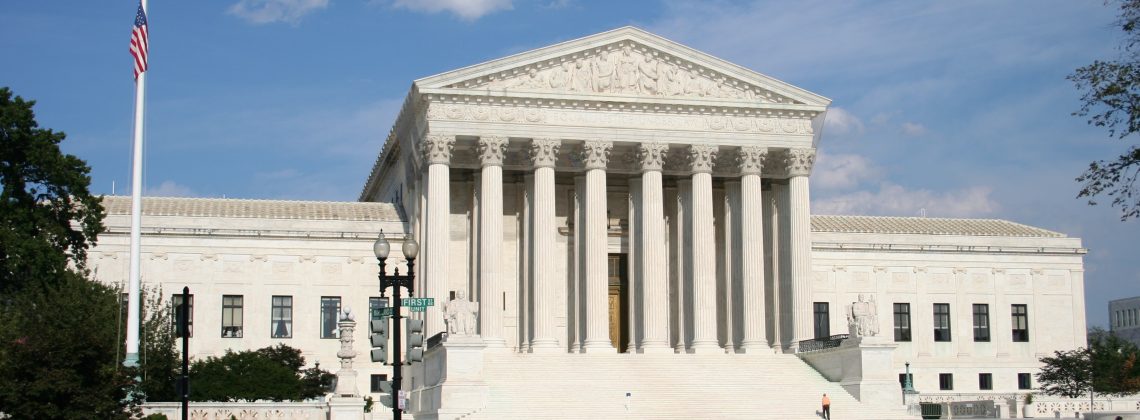

Check out Jornter’s piece, “The Supreme Court’s biggest case this term threatens American democracy.” Here is a taste:
Moore v. Harper is perhaps the most significant case of the U.S. Supreme Court term beginning Monday. At stake is the question of who runs U.S. elections and sets election law. American elections function through a sometimes problematic but familiar system of checks and balances. Since the days of James Madison, state legislatures, state courts, federal courts and Congress all weighed in to work out a just system.
But after the North Carolina Supreme Court struck down the congressional map drawn by its legislature as a violation of the state constitution, two legislators appealed, setting up the showdown in Moore v. Harper. The legislators contend that there should be no checks and balances in elections. Citing a theory promoted in conservative circles in recent years, North Carolina’s state representatives claim that state legislatures alone have the power to set election rules — and their power over elections is absolute. Some of the briefs filed in Moore v. Harper make the claim that not even the federal government can overturn the decisions of state legislatures when it comes to elections.
The stakes of the case couldn’t be higher. A decision in favor of the North Carolina legislators would essentially allow elected representatives to make whatever laws they want about elections. It would also give them license to ignore any state laws in setting the rules for elections. No wonder MSNBC commentator Chris Hayes called the case a “loaded gun aimed at American self-governance.”
And yet, even though many of the current Supreme Court justices claim to use original intent to interpret the Constitution and laws — a practice that analyzes the meaning of words at the time they were drafted — the media has paid little attention to what the Founding Fathers intended in crafting the Constitution’s election provisions. But their thoughts on this topic were quite clear: they opposed extending this sort of power to state legislatures because they believed legislatures would inevitably abuse it.
The Constitution says that the “Times, Places and Manner of holding Elections for Senators and Representatives, shall be prescribed in each State by the Legislature thereof; but the Congress may at any time by Law make or alter such Regulations.”
To get to that clause, the Constitutional Convention of 1787 debated other options — including allowing states to set the rules for elections themselves. But the delegates had qualms about such a system. James Madison, often called the father of the Constitution, argued that “Legislatures of the States ought not to have the uncontrolled right of regulating the times places & manner of holding elections.” He thought this because the legislatures “will sometimes fail or refuse to consult the common interest.” Gouverneur Morris followed Madison by suggesting that “the States might make false returns and then make no provisions for new elections.” The convention agreed with Morris and Madison and therefore unanimously adopted the article giving Congress an explicit check on state legislatures.
After the delegates agreed on the Constitution, they sent it for ratification to the states. Several states ratified the Constitution, but made their acceptance contingent on adoption of a Bill of Rights. Some of the ratifying conventions actually submittedproposed amendments to be included in the Bill of Rights. At least three states suggested amendments guaranteeing state legislatures full and untrammeled control over elections. Yet, none of these proposed amendments made it into the Bill of Rights — a sign that the first Congress also explicitly rejected giving state legislatures unfettered control over the rules governing federal elections.
But the argument in Moore v. Harper has another component: while Congress might be able to overrule state legislatures in setting the rules for elections, state courts cannot. If the plaintiffs are correct, then state legislatures can effectively ignore their own state laws and constitutions because the U.S. Constitution says legislatures should “prescribe” election law.
But this, too, would have rankled the Founding Fathers. While students often learn that the Constitutional Convention arose because of flaws in the Articles of Confederation, the Founding Fathers had another reason for gathering in Philadelphia. They worried that state legislatures were out of control. During the ratification fight, Madison wrote that it was the mistakes in “laws of the states,” not problems with the Articles of Confederation, that gave rise to “that uneasiness which produced the Convention and prepared the public mind for general reform.” And it was “the enemies to the Constitution” who sought to “re-establish the supremacy of the State Legislatures.”
Read the rest here.